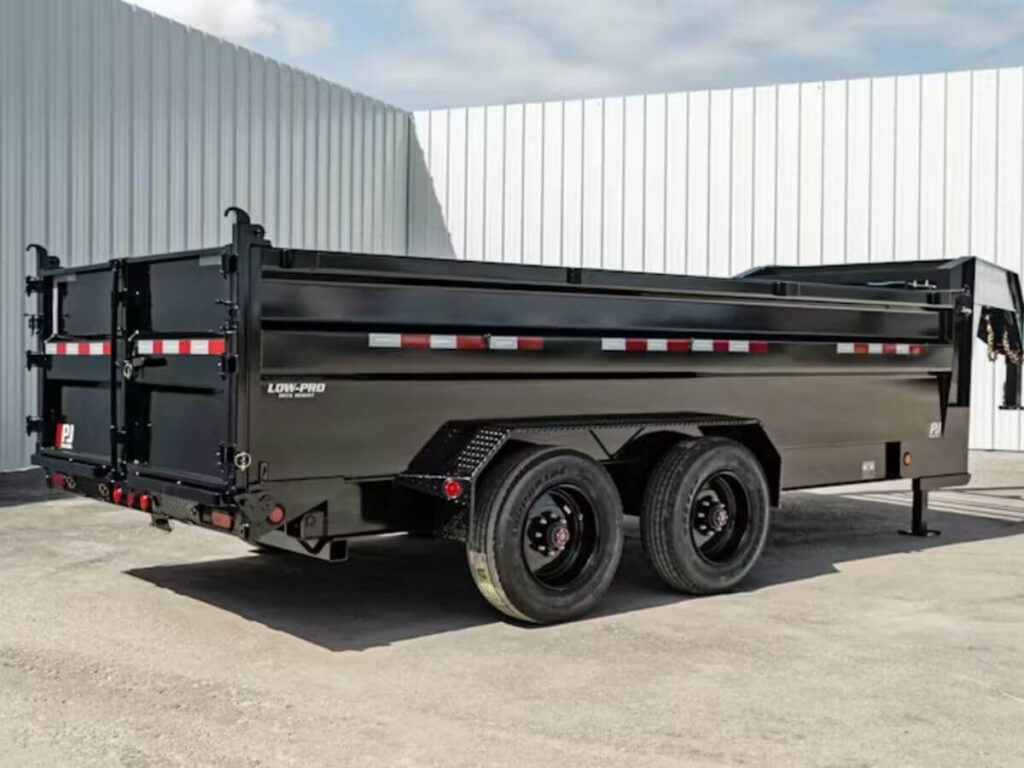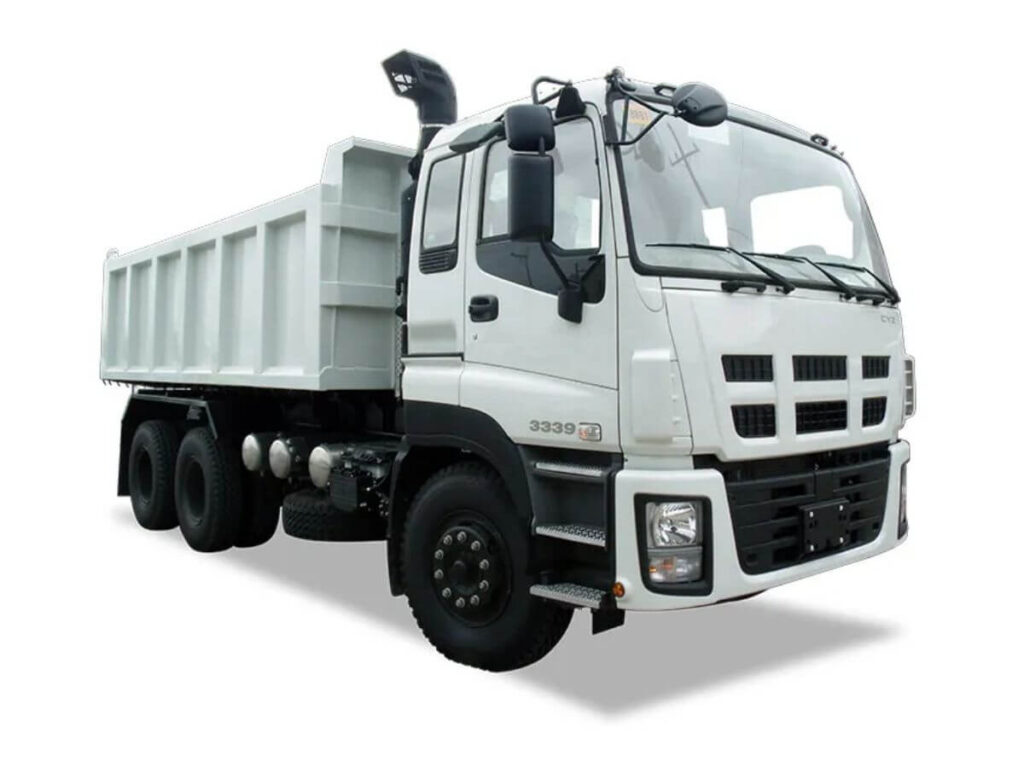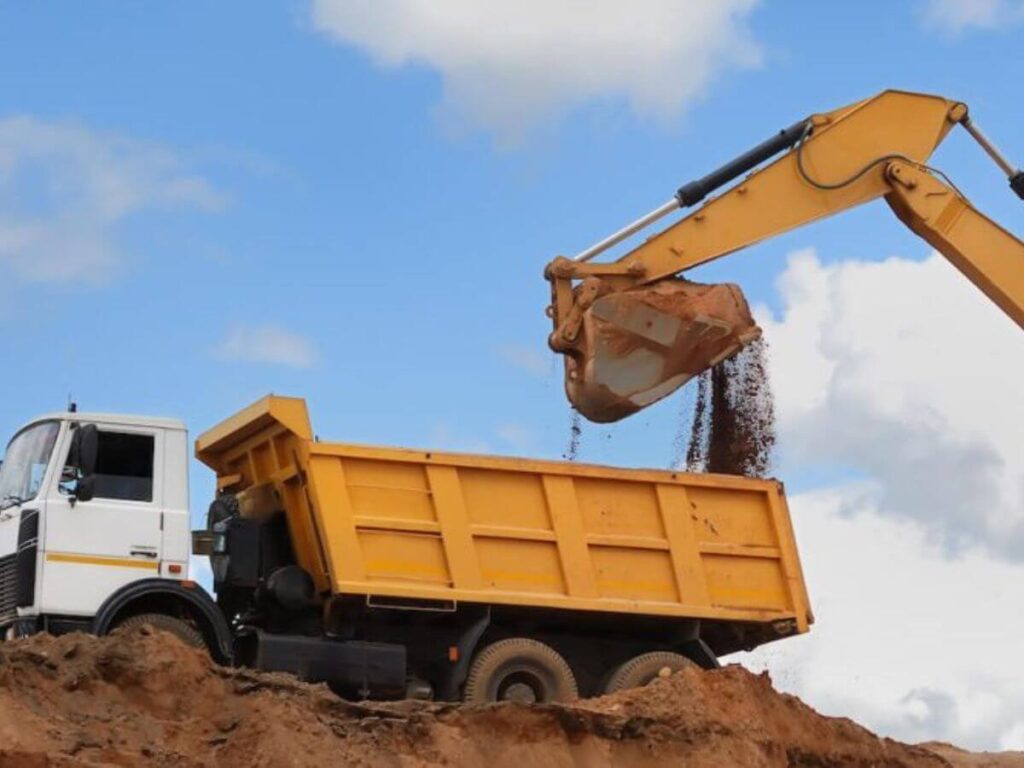Ever seen a shiny dump truck that looked great, until the repair bills started rolling in? Or a trailer that seemed affordable, but couldn’t handle half the job?
I have. I’ve worked with industrial buyers, farmers, fleet operators, and project managers who trusted the spec sheet but got burned in the field.
That’s why I’m writing this. I’ve tested the gear. We’ve seen breakdowns. I’ve spoken directly with manufacturers. I know which equipment lives up to its claims, and which ones don’t.
This article isn’t fluff, it’s the exact breakdown we give our clients when they ask, “Which should I go with?”
We’ll walk you through everything: load capacity, terrain performance, licensing, maintenance, budget, and industry-specific use.
By the end, you’ll have the tools to choose the option that gives you the best return on investment and keeps your business running smoothly.
Let’s get started!
1. What Is a Dump Trailer?
A dump trailer is a heavy-duty, towable trailer designed to haul and unload bulk material using a hydraulic lift system.
It’s not just a piece of equipment, it’s a partner on your job site.
Whether you’re hauling rock, scrap, soil, or grain, this tool gives you the power to dump and go without waiting on a dedicated truck.
How It Works
The beauty of a dump trailer is in its simplicity. You hook it to your truck, load it up, then tilt the bed with a push of a button or lever. The hydraulic system does the hard work.
You don’t need a massive fleet or a specialized rig to get moving. If you’ve got a capable pickup or medium-duty truck, you’re in business.
That kind of flexibility? It means fewer delays, lower costs, and more control over your workflow.
Real Advantages
Here’s why a dump trailer might be the right move for your business:
- Lower upfront investment compared to dump trucks
- Flexible use across multiple jobs and industries
- Easy to store and maintain, fewer moving parts, no engine
- Compatible with the trucks you already own
- Ideal for smaller or mid-size hauling tasks
- Lower regulatory and licensing requirements
- Quick unloading with hydraulic tilt systems
This kind of practicality isn’t just convenient, it adds real value to your operation.
Dump Trailer Specs
While specs vary by manufacturer, here’s what you can typically expect from a standard dump trailer:
- Payload Capacity: 5,000 to 20,000+ lbs
- Bed Lengths: 10 ft to 20+ ft
- Hydraulic Lift Angles: 40 to 45 degrees
- Axles: Single, tandem, or triple axle setups depending on load needs
- Towing Requirement: Usually ¾-ton to 1-ton truck, depending on trailer GVWR
- Types Available: Bumper pull, gooseneck, side-dump, and roll-off
At Rhinotrail we manufacture different models of dump trailer that can be tailored to your operation’s size, scope, and budget.

2. What Is a Dump Truck?
A dump truck is a self-contained vehicle designed to haul and unload large quantities of material, fast, heavy, and often nonstop.
This isn’t a support tool. It’s the backbone of serious operations in construction, mining, and industrial work.
If you’re moving dirt by the ton, working on tight deadlines, or operating on rugged terrain, the dump truck is your answer.
How It Works
A dump truck combines a powerful engine, heavy-duty frame, and hydraulic dump bed into one integrated machine.
It doesn’t need a tow vehicle. It doesn’t need to be staged or set up. You fire it up, fill it up, and put it to work.
I’ve watched crews cycle dump trucks all day on excavation sites without missing a beat. That level of endurance? You don’t get that from lighter equipment.
Key Advantages
Why do heavy-duty crews invest in dump trucks?
- Massive load capacity, built for high-volume hauls
- Greater stability and control in rough terrain
- No need for a separate tow vehicle
- Faster loading and unloading cycles
- Designed for daily, high-intensity use
- Purpose-built for serious job sites with no room for downtime
When time is money and weight is everything, this is the tool that shows up and keeps going.
Dump Truck Specs
Here’s a quick look at what typical dump trucks bring to the table:
- Payload capacity: 13 to 30+ tons (26,000 to 60,000+ lbs)
- Bed lengths: 10 to 25+ ft depending on the chassis
- Truck types: Standard dump, super dump, articulated dump, transfer dump
- Drivetrains: 4×2, 6×4, 6×6, and more for advanced off-road performance
- Licensing requirement: CDL required for most models
- Engine power: Often 300–600+ horsepower, diesel-powered
- Ideal use: Construction, mining, road work, large-scale material transport
Brands like Rhinotrail dominate this space, and for good reason. Their trucks are built to take punishment and keep rolling.

3. Load Capacity & Size
When it comes to moving material, the size of your hauler matters. But it’s not just about maximum weight — it’s about what fits your operation, how often you’re hauling, and how far you’re going.
Here’s how dump trailers and dump trucks stack up side-by-side:
| Feature | Dump Trailer | Dump Truck |
| Payload Capacity | ~5,000 to 20,000+ lbs | 13 to 30+ tons (26,000 to 60,000+ lbs) |
| Bed Size | 10 to 20+ ft | 10 to 25+ ft |
| Axle Setup | Tandem or triple axle | 2 to 4 axles depending on truck type |
| Hauling Frequency | Occasional to moderate use | Daily, continuous heavy-duty use |
| Best For | Gravel, dirt, mulch, ag waste, light debris | Rock, ore, asphalt, soil, demolition material |
| Efficiency | Slower cycle times, requires tow vehicle | Faster loading/unloading, self-contained operation |
| Operational Flexibility | High – can be unhooked and used with various trucks | Low – dedicated to hauling, single-purpose |
| Space Requirements | Easier to maneuver and store | Requires more room to turn, back, and park |
| Suitability | Ideal for small-to-mid-size jobs with mixed load types | Ideal for high-volume, time-sensitive, industrial operations |
Go with a dump trailer if you value flexibility, lower cost, and work with moderate loads. Choose a dump truck if you need power, speed, and serious hauling capacity every day.
4. Maneuverability and Terrain Handling
It’s one thing to haul materials, it’s another to get your equipment where it needs to be. Tight urban job sites, narrow farm roads, soft ground, steep slopes, they all require the right machine for the environment.
Maneuverability isn’t a luxury. It’s often the difference between hitting deadlines and burning fuel stuck in a corner you can’t turn around in.
Dump Trailers: More Nimble, Less Rugged
Dump trailers are typically easier to manage in tighter or more congested areas, as long as your towing vehicle can handle the space.
- Easier to back into driveways, alleys, and compact job sites
- More flexible for residential or landscaping jobs
- Can detach and reposition more easily when not in use
- But—limited off-road capability depending on tires, weight, and truck towing it
I’ve seen small contractors navigate suburban projects with trailers where a full dump truck simply wouldn’t fit. That mobility can save hours.
Dump Trucks: Built for Harsh Ground, But Need Space
Dump trucks are a beast on rugged terrain. They’re built to climb, crawl, and roll over obstacles that would sideline lighter equipment.
- Superior traction and suspension for off-road and uneven surfaces
- Articulated models excel on slopes, mud, and rocky areas
- But—requires more turning space, especially in urban or tight zones
- It can be difficult to operate in confined residential areas or job sites
If you’re working in construction zones, mines, or rough field conditions, this is where dump trucks shine. They’re made to go where trailers tap out.

5. Cost: Purchase, Operation, and Maintenance
If you’re comparing dump trailers and dump trucks, cost is always near the top of the list, but too many buyers focus only on the sticker price.
What matters is the total cost of ownership. That includes what you pay upfront, what it costs to run day-to-day, and how much it drains (or returns) over the long haul.
Let’s break it down into what truly impacts your budget and your bottom line:
Upfront Investment
Dump trailers are significantly more affordable when you’re just starting out.
You can get a reliable, commercial-grade dump trailer for $8,000–$20,000, depending on size, axles, and hydraulic setup. And chances are, you already own the truck to pull it. That means no extra vehicle investment.
Dump trucks? They’re in another league entirely. Even older models often run $50,000 or more, and newer heavy-duty units can exceed $150,000–$200,000.
It’s a big financial jump. Worth it for high-load operations—but hard to justify for lighter or part-time use.
Operating Costs
Fuel, Labor, and Licensing
Once you’re up and running, trailers continue to cost less to operate.
- They use your existing truck, which usually has better fuel economy
- They don’t require a CDL, keeping labor costs down
- Insurance, registration, and inspection fees are typically lower
Dump trucks are built to haul, but that power comes with a price:
- Higher fuel consumption, especially under load
- CDL-required drivers, which narrows your hiring pool and increases payroll
- More complex regulations depend on your state and weight class
If you’re watching monthly operating costs, trailers are easier on cash flow.
Maintenance and Downtime
When it comes to keeping your equipment on the road and out of the shop, simpler is better.
Dump trailers require less frequent and less expensive maintenance. With no engine or transmission to service, most issues come down to:
- Tires
- Brakes
- Hydraulics
- Basic electrical
Dump trucks are full-fledged vehicles. That means engine repairs, drivetrain issues, electrical systems, and more. They also require more specialized technicians, which means higher labor rates and longer downtime.
And downtime? That’s productivity lost, and revenue left on the table.
Long-Term Value and ROI
Here’s where things balance out. If your operation demands daily, heavy-duty hauling, a dump truck can justify its cost quickly. Fewer trips, more volume, and better time-to-delivery can pay back your investment quickly.
But if your jobs vary, or if your load volume shifts week to week, a dump trailer gives you flexibility and value without the heavy financial commitment.
So what’s the better investment? That depends on your use case, workload, and how you measure ROI: by speed, capacity, or cost control.

6. Licensing, Regulations & Driver Requirements
It’s not just about whether your equipment can do the job; it’s about whether your team can legally operate it, and how much red tape comes with the machine.
Licensing and regulations impact who you can hire, how quickly you can get on the road, and what kind of insurance and inspections you’re dealing with.
If you overlook this part, the hidden costs and delays will show up later, and they won’t be cheap.
Dump Trailer
One of the biggest advantages of dump trailers is how simple it is to stay compliant.
- Most dump trailers fall under non-commercial use thresholds, depending on load size and your local DOT laws
- No CDL is required in many cases (as long as the Gross Combined Vehicle Weight Rating (GCVWR) stays below 26,001 lbs)
- Easier for small businesses or new operators to get started
- Lower insurance requirements in many states
This means you don’t have to worry about hiring licensed CDL drivers or managing DOT reporting—unless you scale up significantly.
Dump Truck
Dump trucks almost always require a Commercial Driver’s License (CDL), especially anything above a Class 6 or 7 rating.
- Drivers must pass DOT physicals, written tests, and behind-the-wheel exams
- You’ll also need to comply with federal and state-level commercial vehicle regulations
- Your business may be subject to hours-of-service rules, logbook requirements, and regular inspections
- Insurance premiums are higher due to risk and liability
If you’re running a fleet, managing CDL-qualified drivers becomes its own operational task. And for many small businesses, that’s a dealbreaker.
Insurance & Registration
Even before the first haul, you’ll need proper paperwork, and the cost difference is real.
- Dump trailers generally cost less to register and insure, especially if pulled by a standard pickup
- Dump trucks fall into commercial insurance categories, often with significantly higher premiums
- Expect additional costs for DOT numbers, fleet registration, and safety inspections
Failing to comply here doesn’t just mean fines, it can shut down your job or delay your permits.
Hiring & Team Management Impacts
Here’s the business reality: the more specialized your equipment, the harder it is to hire for.
- No CDL required for trailers means a larger labor pool and less dependency on certified operators
- Dump trucks need CDL holders, which limits your options and increases wages
- Employee turnover can be tougher to manage when CDL talent is in short supply
We’ve heard it time and time again, teams with dump trailers onboard jobs faster, especially in regions where CDL drivers are hard to come by.

7. Industrial Applications
The true test of any hauling equipment isn’t just specs, it’s how well it performs in your environment.
Different industries demand different strengths: flexibility, power, terrain handling, or compliance. What works for a farm won’t cut it on a mining site. And what works for a construction crew may be overkill for food transport.
Let’s break down where dump trailers and dump trucks fit best, industry by industry:
Construction and Demolition
Dump Trucks dominate here, and for good reason.
- They handle heavy loads of gravel, concrete, rebar, and debris with ease
- Designed for continuous cycles in and out of job sites
- Built tough for rough terrain, steep grades, and constant loading
But dump trailers still have their place:
- Perfect for residential or light commercial projects
- Useful for contractors who already own trucks and need flexibility
- Easier to store and move in tight urban construction zones
If your projects are large-scale and time-sensitive, go with dump trucks. But for smaller jobs, trailers offer great ROI without tying up a full vehicle.
Agriculture and Land Management
This is dump trailer territory.
- Farmers and ag businesses love modularity and lower cost
- Haul feed, fertilizer, grain, waste, or even light equipment
- Easy to disconnect and repurpose trucks for other tasks
- Ideal for seasonal operations with fluctuating demand
Most farms and ag operations don’t need a full dump truck unless they’re moving large volumes daily. Trailers give them the right mix of function and flexibility.
Mining, Oil & Energy Sectors
These industries are all about power and endurance, and dump trucks are built for it.
- Ideal for heavy, repetitive hauls over short distances
- Articulated dump trucks excel in off-road, uneven, or steep terrain
- Handle rock, ore, drilling waste, and site debris without breaking down
Dump trailers don’t hold up well in extreme conditions. They’re not built for continuous, high-weight abuse. If you’re in energy or extraction, this isn’t a debate. You need a dump truck.

8. How to Choose Between a Dump Trailer and a Dump Truck
By now, you know the differences. But knowing isn’t the same as choosing.
This section helps you step back, look at your operation as a whole, and make a decision based on facts, not guesses or spec sheets. It’s about making the right call for your business, not just buying the bigger machine.
Here’s how to get there:
Start with Your Workload
What are you hauling? And how often?
- If you’re moving moderate loads like dirt, mulch, debris, or feed on an occasional or weekly basis, a dump trailer is more than enough
- If you’re hauling heavy materials every single day, or moving large volumes from one job site to the next, go with a dump truck
Remember: overspending on capacity you don’t use is just as costly as underestimating your needs.
Consider Your Terrain and Access
Think about where your equipment will go, because not all job sites are easy to reach.
- Tight urban or residential jobs? Go with a dump trailer for better maneuverability
- Steep, muddy, or uneven terrain? You need the traction and ground clearance of a dump truck
If your equipment can’t reach the job, it won’t matter how much it can haul.
Map Out Your Long-Term ROI
Take a hard look at the big picture, not just what it costs today.
- Trailers win on lower upfront cost, versatility, and ease of use
- Trucks win on load efficiency, durability, and job site performance
Ask yourself:
- Will this pay off in 6 months? In a year?
- Will I grow into it or outgrow it too fast?
- How often will it sit idle?
The right answer isn’t always the most powerful machine, it’s the one that brings you the most return for the work you do.
Conclusion
Choosing between a dump trailer and a dump truck isn’t just about metal and hydraulics. It’s about how your business runs today and tomorrow.
You’ve seen the costs, the specs, and the use cases. Now, it’s your move.
We’ve helped teams just like yours avoid costly mistakes by looking beyond the price tag and focusing on real-world needs.
Need help making the right call?
Contact us today. We’ve been there, and we’re here to help you move forward.


